
Junk Culture is the fifth studio album by English electronic band Orchestral Manoeuvres in the Dark (OMD), released on 30 April 1984 by Virgin Records. After the commercial disappointment of the experimental Dazzle Ships (1983), OMD and Virgin intended for the group to shift towards a more accessible sound on its follow-up release. The band retained much of their early experimental approach but embraced a wider range of influences than previously, drawing inspiration from pop, dance, Latin and black music. The record's musical style has been characterised as "Talking Heads-meets-Kraftwerk".
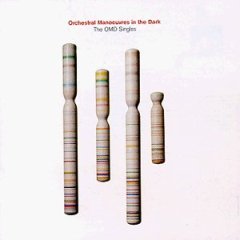
The OMD Singles is a singles compilation album by Orchestral Manoeuvres in the Dark, released in 1998. It reached number 16 on the UK Albums Chart. Originally, the compilation was to include a second disc of new remixes; however, this idea was abandoned due to budget limitations. The few remixes that were produced were released separately as The OMD Remixes. In 2003, The OMD Singles was reissued in France with the remix disc finally included, comprising the 1998 remixes as well as additional remixes. In the same year Virgin also released a two-disc box set comprising The OMD Singles and Navigation: The OMD B-Sides.
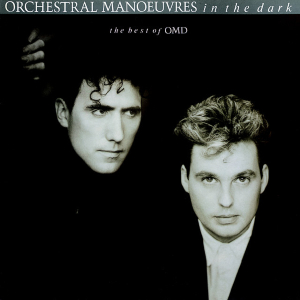
The Best of OMD is a compilation album by English electronic band Orchestral Manoeuvres in the Dark (OMD), released in 1988; marking a decade since the band's beginnings. The record essentially delineates the group's experimental early years from their pop-oriented later work: side one features recordings from 1979 to 1984, while side two is drawn from the group's 1984–1988 efforts.
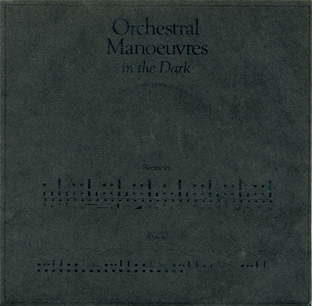
"Electricity" is the 1979 debut single by English electronic band Orchestral Manoeuvres in the Dark (OMD), featured on their eponymous debut album the following year. Andy McCluskey and Paul Humphreys sing the lead vocals on the track together in unison. Recognised as one of the most influential singles of its era, "Electricity" was integral to the rise of the UK's synth-pop movement. It has garnered praise from music journalists and other recording artists.
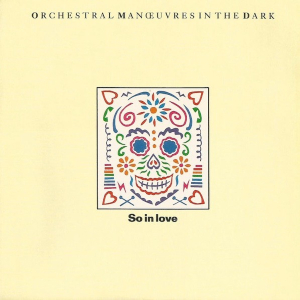
"So in Love" is a 1985 song by English electronic band Orchestral Manoeuvres in the Dark (OMD), released as the first single from their album Crush. It reached the top 30 of both the UK Singles Chart and the US Billboard Hot 100, becoming their first entry on the latter. The track was a top 10 hit in Belgium and Holland.
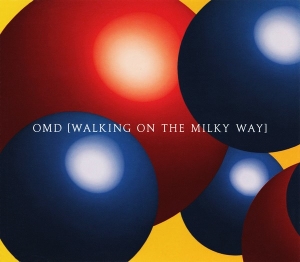
"Walking on the Milky Way" is a song by English electronic band Orchestral Manoeuvres in the Dark (OMD). It was released as a single on 5 August 1996 and appeared on their Universal album a month later. The song reached number 17 on the UK Singles Chart, becoming the group's first UK top-20 hit in over five years, and their last UK top-40 single. The band were flanked by a full string orchestra for their Top of the Pops performance of the song broadcast on 16 August 1996.

"Call My Name" is a song by English electronic band Orchestral Manoeuvres in the Dark (OMD). Remixed for its single release, it was issued as the fourth and final single from the group's eighth studio album, Sugar Tax (1991), on 18 November 1991. The single peaked at number 50 on the UK Singles Chart The B-side to the 7-inch single, "Walk Tall" is featured as the tenth track on Sugar Tax. An extended remix version was also released on the CD and 12-inch issues, featuring an uncredited female voice speaking over a telephone and the sounds of a rotary telephone dial.
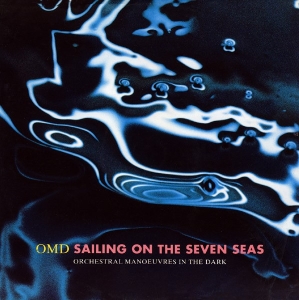
"Sailing on the Seven Seas" is a song by English electronic music band Orchestral Manoeuvres in the Dark (OMD), released as the first single from their eighth studio album, Sugar Tax, on 18 March 1991. Along with 1981's "Souvenir", it is the band's highest-charting UK hit to date, peaking at number three on the UK Singles Chart. It also charted at number three in Austria and Sweden, number five in Ireland and number nine in Germany. The single was the first to be released by OMD without co-founder Paul Humphreys, who had left to form his own band The Listening Pool.

"Pandora's Box" is a song by English electronic band Orchestral Manoeuvres in the Dark (OMD), released as the second single from their eighth studio album, Sugar Tax, on 24 June 1991. The song, which deals with the less glamorous side of celebrity, was inspired by silent film actress Louise Brooks and is named after the 1929 film Pandora's Box in which she starred.

"Then You Turn Away" is a song by English electronic band Orchestral Manoeuvres in the Dark (OMD), released as the third single released from their eighth studio album, Sugar Tax (1991), on 2 September 1991. It peaked at number 50 on the UK Singles Chart the same month and also reached number 56 in Germany.

"Joan of Arc (Maid of Orleans)" is a song by English electronic band Orchestral Manoeuvres in the Dark (OMD), released in 1982 as the third single from their third studio album, Architecture & Morality. To prevent confusion with the group's previous single "Joan of Arc", the song was retitled "Maid of Orleans (The Waltz Joan of Arc)" for its single release. Both songs are about the French heroine Joan of Arc and both reached the Top 5 of the UK Singles Chart—although this release was more successful internationally, topping the charts in several countries including Germany, where it was the biggest-selling single of 1982. "Maid of Orleans" has sold four million copies worldwide.

"Red Frame/White Light" is the second single by English electronic band Orchestral Manoeuvres in the Dark (OMD). The song is about a red telephone box in Meols, on the Wirral peninsula in Cheshire, that was used by the group to make calls to organise their gigs in the late 1970s. The track is composed of two alternating major/minor sections, each built around a synthesizer hook. Lyrical content is minimal, comprising mostly brief, spoken word utterances. It was the band's first single to chart.

"Messages" is a song by English electronic band Orchestral Manoeuvres in the Dark (OMD) from their self-titled debut studio album (1980). A re-recorded version of the song was released on 2 May 1980 as the album's third and final single, reaching number 13 on the UK Singles Chart and becoming OMD's first top-40 entry. As with their debut single "Electricity", "Messages" features a melodic synth break instead of a sung chorus.

"Locomotion" is a song by English electronic band Orchestral Manoeuvres in the Dark (OMD), released on 2 April 1984 as the lead single from their fifth studio album, Junk Culture (1984). It was one of the band's biggest European hits, charting within the Top 5 in the UK, Ireland, Belgium and the Netherlands, while also peaking at No. 14 in Germany.
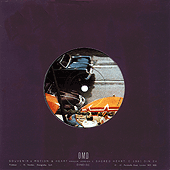
"Souvenir" is a song written by Paul Humphreys and Martin Cooper of English electronic band Orchestral Manoeuvres in the Dark (OMD), and released as the first single from the group's 1981 album Architecture & Morality. Sung by Humphreys, the track is characterised by its use of slowed-down choral loops, and showcases OMD's early approach of utilising a synthesizer hook in place of a vocal chorus. The song has garnered praise from critics and fellow artists.
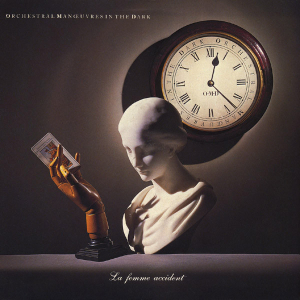
"La Femme Accident" is a song by English electronic band Orchestral Manoeuvres in the Dark (OMD), released as the third and final single from their sixth studio album Crush (1985). Like two of their previous singles, it references Joan of Arc. Unlike those two singles, it was not a substantial hit, peaking at No. 42 in the UK.

"Genetic Engineering" is a 1983 song by English electronic band Orchestral Manoeuvres in the Dark (OMD), released as the first single from their fourth studio album Dazzle Ships. The synthesized speech featured on the track is taken from a Speak & Spell, an educational electronic toy developed by Texas Instruments in the 1970s intended to teach children spelling.
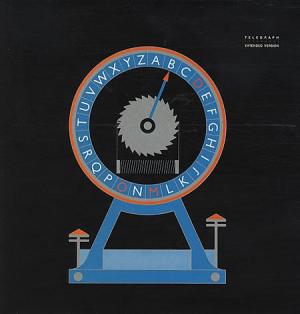
"Telegraph" is a song by English electronic band Orchestral Manoeuvres in the Dark (OMD), and the second single from their studio album Dazzle Ships (1983). "Telegraph" was originally slated to be the first single released, but being unhappy with the mix and with pressure from Virgin, the group instead opted for "Genetic Engineering".
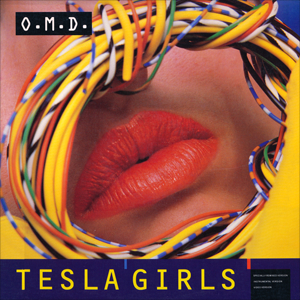
"Tesla Girls" is a song by English electronic band Orchestral Manoeuvres in the Dark (OMD), released as the third single from their fifth studio album, Junk Culture (1984). It peaked at No. 21 in the UK and Ireland, and No. 8 on the Dutch Top 40. Although only moderately successful on the charts, it became one of the group's biggest club hits.

"Dreaming" is a song by English electronic band Orchestral Manoeuvres in the Dark initially released in January 1988 as a single from their compilation album, The Best of OMD.




















